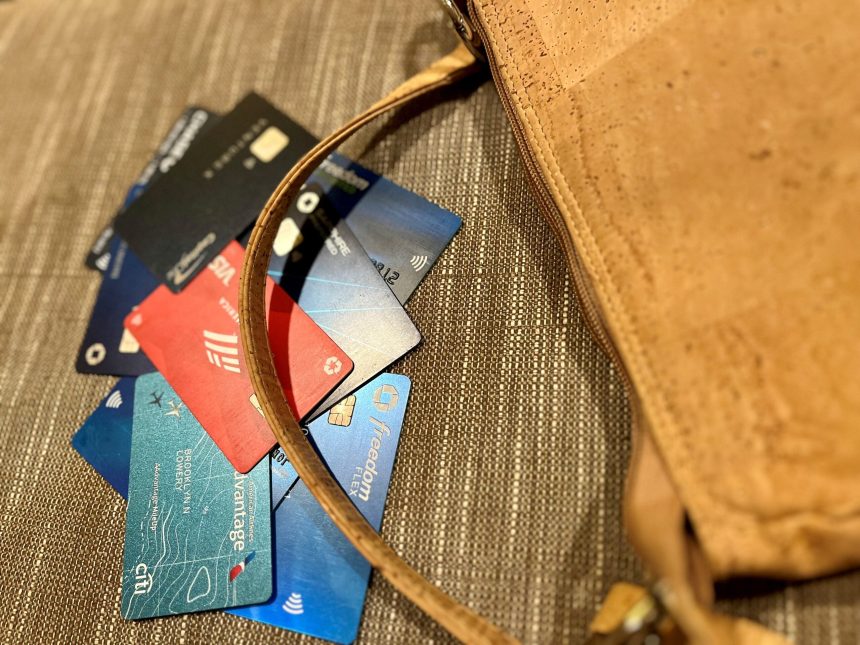The biggest credit card industry development of 2024 occurred in February when Capital One announced an agreement to acquire Discover for $35 billion in stock. The biggest development of 2025 could be [dramatic pause…] Capital One actually acquiring Discover.
You see, the transaction hasn’t closed yet because of regulatory hurdles. When it was announced, Reuters wrote, “Investors are assigning only a 50% chance to the deal being completed amid concerns the proposed acquisition could become a lightning rod for U.S. regulators and lawmakers fretting over high credit card interest rates and fees.”
In September, new merger guidelines published by the Department of Justice, the Federal Deposit Insurance Corporation and the Office of the Comptroller of the Currency introduced “fresh hurdles” to the deal, according to Bloomberg Law.
The publication quoted Jamie Grischkan, an Arizona State University law professor who specializes in financial regulation, as saying, “The proposed merger will certainly have a high bar to clear in the current environment.”
However, the “current environment” that the professor referenced changed dramatically in early November when Donald Trump won the presidential election. Barron’s noted that Capital One’s and Discover’s stocks surged to record highs the next day on expectations the merger would “sail through under Trump.” It now looks likely that the tie-up will be approved in early 2025; the more interesting questions surround what will happen next.
Have a question about credit cards? E-mail me at [email protected] and I’d be happy to help.
Capital One and Discover bring different strengths to the table
Discover has a reputation for providing excellent customer service, it emphasizes cash back rewards and courts “prime revolvers” (people with good credit scores who carry balances from month to month).
Capital One, meanwhile, has been moving more upmarket in recent years, debuting a luxury travel rewards card (the Capital One Venture X Rewards Credit Card) that made waves in a crowded space historically dominated by The Platinum Card® from American Express and the Chase Sapphire Reserve®. Capital One has also unveiled its own proprietary airport lounges and added a host of airline and hotel transfer partners to its travel cards. During recent earnings calls, Capital One executives have been fond of describing the firm’s ideal customers as “heavy spenders.” Sometimes called transactors, these tend to be rewards chasers who put as much everyday spending as possible on their credit cards and then pay their bills in full before interest hits.
I’m not expecting big changes to the credit card rewards landscape in 2025. Even after the merger closes, I believe Discover and Capital One cards will continue to stay in their existing lanes, at least for a while. The fact that Discover is both a card issuer (as in, a lender) as well as a card network (a payment processor) is intriguing. Capital One expects to move all of its debit cards to the Discover network in 2025, but the credit card transition will be slower. Supporters of the merger point to more network competition as a pivotal argument for why the transaction should be allowed to proceed, which brings me to the other key theme I foresee in 2025.
The Credit Card Competition Act is gaining steam
Visa and Mastercard are the dominant credit card networks. They process 80 percent of U.S.-based credit card transactions, while Discover and American Express account for the remainder. Visa and Mastercard have come under significant regulatory scrutiny in recent years and have been labeled a duopoly by prominent politicians such as Sen. Dick Durbin, the Chairman of the Senate Judiciary Committee and the architect of the Credit Card Competition Act (CCCA).
The CCCA, first introduced by Durbin (a Democrat) and Senator Roger Marshall (a Republican) in 2022, built momentum this year after languishing for a couple of years in legislative limbo. It now has more than a dozen co-sponsors across the Senate and the House of Representatives, an eclectic mix of liberals and conservatives which includes Vice President-elect J.D. Vance. A Nov. 2024 Senate Judiciary Committee hearing was particularly explosive, with senators from both parties lashing out at Visa and Mastercard executives.
The central argument is that credit card interchange fees are too high (these are the levies, often 2 to 3 percent, that merchants pay card companies every time a customer pays with a credit card). Unlike the Durbin Amendment, which placed a strict cap on debit card interchange fees in 2010, the CCCA seeks to address the problem in a more roundabout fashion.
It would require at least two networks to be available for every transaction (and they couldn’t be both Visa and Mastercard). The theory is that lower-cost competitors will emerge and bring costs down for merchants and consumers. I disagree with the premise, since only 1 percent of merchants lowered prices after debit card processing fees decreased, according to the Richmond Fed.
At best, the CCCA would save merchants (especially big ones) some money. At worst, it could cut into credit card rewards (since interchange fees fuel cash back and travel rewards programs) and undermine data security (Who would these new, low-cost networks be and are they ready for prime time?).
Nonetheless, after watching the November hearing, I feel for the first time that something is going to change. Multiple senators from both parties threatened that Visa and Mastercard need to give some concessions to merchants or else Congress will probably pass something they don’t like. It was this kind of oversight which led many banks to voluntarily (under pressure) lower overdraft fees in the past year.
The populist wave could affect credit card rates, too
If you think the group co-sponsoring the CCCA is an odd mix of bipartisan legislators who rarely agree upon anything, you’ll really be shocked by this: President-elect Donald Trump recently floated a credit card rate cap of just 10 percent. That’s five percentage points lower than the threshold proposed in 2019 by Sen. Bernie Sanders and Rep Alexandria Ocasio-Cortez, two of the most liberal members of Congress.
Sanders loves Trump’s idea (perhaps the first time the two have ever agreed on a policy proposal), recently posting on X:
“I look forward to working with the Trump Administration on fulfilling his promise to cap credit card interest rates at 10 percent. We cannot continue to allow big banks to make record profits by ripping off Americans by charging them 25 to 30 percent interest rates. That is usury.”
The average credit card rate is 20.35 percent (down slightly from a record established earlier this year). The average retail credit card charges about 30 percent. There is no federal standard for how much a credit card lender can charge most customers (the Military Lending Act prohibits charging more than 36 percent to members of the armed forces).
Even for those not covered by the Military Lending Act, 36 percent has become a de facto ceiling for higher-rate products such as store credit cards and subprime cards. And federally-chartered credit unions can’t charge more than 18 percent (last year, Rep. Senator Josh Hawley introduced a bill which would extend that limit to bank-issued cards, although it hasn’t moved forward to date).
I can’t envision a 10 percent rate cap coming to fruition — or an 18 percent cap, for that matter. Both would completely upend the economics of the credit card market and would probably spell the end of credit card rewards and cause access to credit to dry up. But even if a hard cap is not enacted, it’s notable that government officials and everyday Americans seem to be viewing financial institutions with increased hostility.
The bottom line
It’s an odd contradiction that the incoming Trump Administration is projected to have a light regulatory touch on mergers and acquisitions (likely aiding the Capital One/Discover deal), yet the President-elect recently called for an impossibly low credit card rate cap and the Vice President-elect is a co-sponsor of a bill which could cause the biggest changes to credit card processing in more than a decade.
My prediction is that the most extreme outcomes will be avoided, but I believe banks and card networks would be wise to give a little to save a lot. They’re going to have to offer some public concessions on rates and fees in order to avoid being blown off course by the winds of change.
Read the full article here














